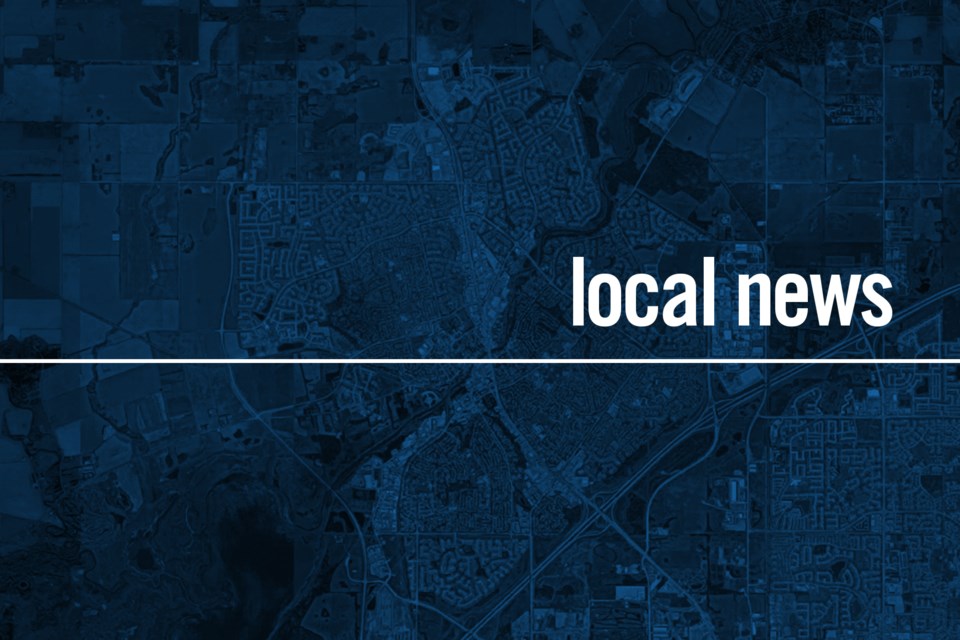Local officials say money for infrastructure and a further cut to Alberta's corporate tax rate will help the recovery in St. Albert.
On Monday, Alberta Premier Jason Kenney and Finance Minister Travis Toews announced plans to cut corporate taxes and create 50,000 jobs from spending on diversified sectors of the economy to boost recovery from COVID-19.
The Alberta government will spend $10 billion on infrastructure projects that would create immediate jobs, like the construction of health-care facilities, schools and pipelines. The province will also cut the corporate tax rate two years earlier than planned from 10 per cent to eight per cent.
St. Albert Coun. Ken MacKay said any investments to spur the Alberta economy will help support the city's own economy.
“Any incentives or infrastructure funding that's going to spur the Alberta economy is also going to have downstream effects for St. Albert,” MacKay said.
The government will launch a series of large-scale infrastructure projects this summer, with a price tag of $612 million, that will create 2,500 jobs. The projects will include the twinning of highways, projects that support growth in the agricultural sector, gas line extensions for northern residents, treatment facilities for Albertans recovering from addictions, and other important projects. An exact list of projects was not available at press time.
The province will also be investing in municipal infrastructure. Earlier this month, Alberta announced $50 million for municipalities through the Strategic Transportation Infrastructure Program (STIP), and the province will invest another $500 million in funding to municipalities that they expect will be matched by the federal government. This investment represents an almost 30-per-cent increase in municipal infrastructure funding for the current fiscal year, before the federal contribution kicks in.
MacKay said although the city hasn’t heard what projects will be getting money from the province yet, they have moved to ensure any projects they want done can qualify for the money.
“We moved really quickly on trying to get our servicing costs for Range Road 260 to a shovel-ready stage,” MacKay said of the road that would lead out to the Rohit rec lands on the west end of St. Albert.
“I'm cautiously optimistic that we potentially have an opportunity to have that funded by the provincial government. Certainly we moved a little bit quicker on some of our planning for Ray Gibbon Drive – whether or not that would be eligible for faster provincial assistance, it would be certainly be a benefit.”
MacKay said the downstream effects of getting provincial funding for Range Road 260 would have positive downstream effects for St. Albert. The lands would allow for more businesses to move into the city, and more residents would follow, which would both increase the tax base for the city.
The projects announced on Monday will be followed by more project announcements in the coming months to help drive economic expansion.
The recovery plan was put together with the help from the premier’s economic recovery council, with members including economist Jack Mintz and former Prime Minister Stephen Harper.
Kenney said the unemployment rate in Alberta could reach 25 per cent and the deficit has ballooned from a once-projected $7 billion up to $20 billion for the year.
Corporate tax cut two years early
Along with investing in infrastructure, the province has cut the corporate tax rate sooner than planned, dropping it from 10 per cent to eight per cent on July 1, two years sooner than planned. The government also plans to reduce red tape by ensuring government processes and regulations in the province do not constrain growth.
“Given the severity of the economic crisis, we must act now,” Kenney said.
Toews said the tax cut is essential to the province’s recovery to make sure Alberta has a competitive tax rate.
“When Alberta’s corporate income tax rate hits eight per cent, British Columbia’s corporate income tax will be 50 per cent higher at 12 per cent. As employers work to recover from COVID-19, they can be confident that Alberta will be the best place in Canada, by far, to locate, bringing with them jobs and prosperity,” Toews said.
St. Albert and District Chamber of Commerce chair Marg Mrazek said the tax cut makes Alberta the most competitive jurisdiction in Canada right now.
“For businesses currently in existence, really the benefit only comes in if you're already making money, so we'll have to see what that impact is going to be,” Mrazek said.
Overall, Mrazek said the recovery plan showed support for Alberta businesses and she was happy to see the investments in technology and innovation included in the funding.
The province has committed to diversification through investing a further $175 million over the next three years in the Alberta Enterprise Corporation that supports the technology sector in Alberta. The province will also provide a refundable tax credit to companies that invest in research and development, known as the Innovation Employment Grant.
Jennifer Henderson covers rural Alberta matters under the Local Journalism Initiative, which is funded by the Government of Canada.




